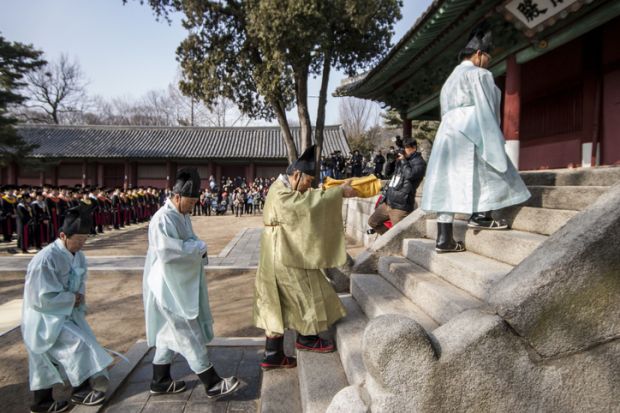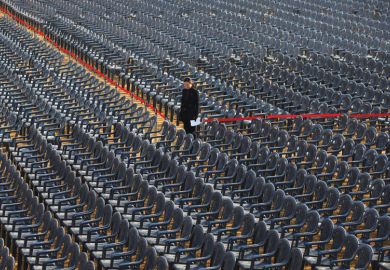Nearly half of South Korea’s universities could close in the next quarter-century as the country’s population continues to shrink, with regional institutions especially hard hit, a professor has warned.
Dong-Kyu Lee, professor in disaster management at Dong-A University, said he expected that only 190 out of 385 existing universities would exist in 25 years’ time. Outside Seoul, where Korea’s most prestigious providers are concentrated, just 44 per cent of universities are expected to remain open, compared with 80 per cent in the capital.
Contracting demographics have already forced some universities to close, particularly outside Seoul.
“At present, I think there is no hope for local universities,” said Professor Lee, adding that almost all those institutions are nearly “100 per cent dependent on college tuition” and deeply vulnerable to declining enrolment.
His report, which was presented at a forum held jointly by the Seoul National University Institute for Social Development and Korea Institute for Health and Social Affairs, is based on the rate of childbirth in Korea’s regions, university enrolment rates and student numbers in primary and secondary education.
While academics remain divided over just how badly Korea’s demographic crunch will hit its university sector, there is broad agreement that many of the country’s universities will be under threat. And in a sector where 70 per cent of students already pursue higher education, boosting enrolment is no mean feat, academics said.
Professor Lee predicted that the coming years would bring “fierce competition” for full-time academic positions and “unfair recruitment of non-full-time professors” by universities.
Stuart Gietel-Basten, professor of social science and public policy at Hong Kong University of Science and Technology and an expert in Asian demography, said that many universities, particularly regional ones, would not be able to stave off closure.
While he acknowledged that the process can be “very traumatic”, he said “it’s inevitable”.
Professor Gietel-Basten likened the process to industrial decline in former boom towns: “It’s like car factories in Detroit – there was nothing there before, then they built all these factories, then they closed down.”
But John Lie, professor of sociology at the University of California, Berkeley, expressed confidence that Koreans’ appetite for higher education would buffer the outcome for universities.
“South Koreans are unlikely to recuperate fully from the diploma disease: the desire for educational credentials. This is true not just for students and their parents, but also employers, both private and public,” he said.
Professor Lie took grim predictions with a grain of salt.
“Although there are many mediocre universities in South Korea, it’s very unlikely that anything close to half will close in 25 years, barring a major catastrophe,” he said. “The prognostication is from one academic study, and vatic pronouncements from academics rarely come true.”
David Tizzard, assistant professor in Korean studies at Seoul Women’s University, saw a glass half full in the situation.
“I’m not sure that it will play out quite as badly as some numbers predict,” he said, adding that “Korea is a country that has survived colonialism, civil war, brutal military dictatorships, and a compressed modernisation”.
Dr Tizzard suggested that the coming change “might actually be good” for a country where, for the past few decades, “virtually everyone was sent to university, regardless of their aptitude or interest”.
“Perhaps this might be a way to demonstrate to citizens that people can have value in whatever career or path they choose,” he said.
Register to continue
Why register?
- Registration is free and only takes a moment
- Once registered, you can read 3 articles a month
- Sign up for our newsletter
Subscribe
Or subscribe for unlimited access to:
- Unlimited access to news, views, insights & reviews
- Digital editions
- Digital access to THE’s university and college rankings analysis
Already registered or a current subscriber?








